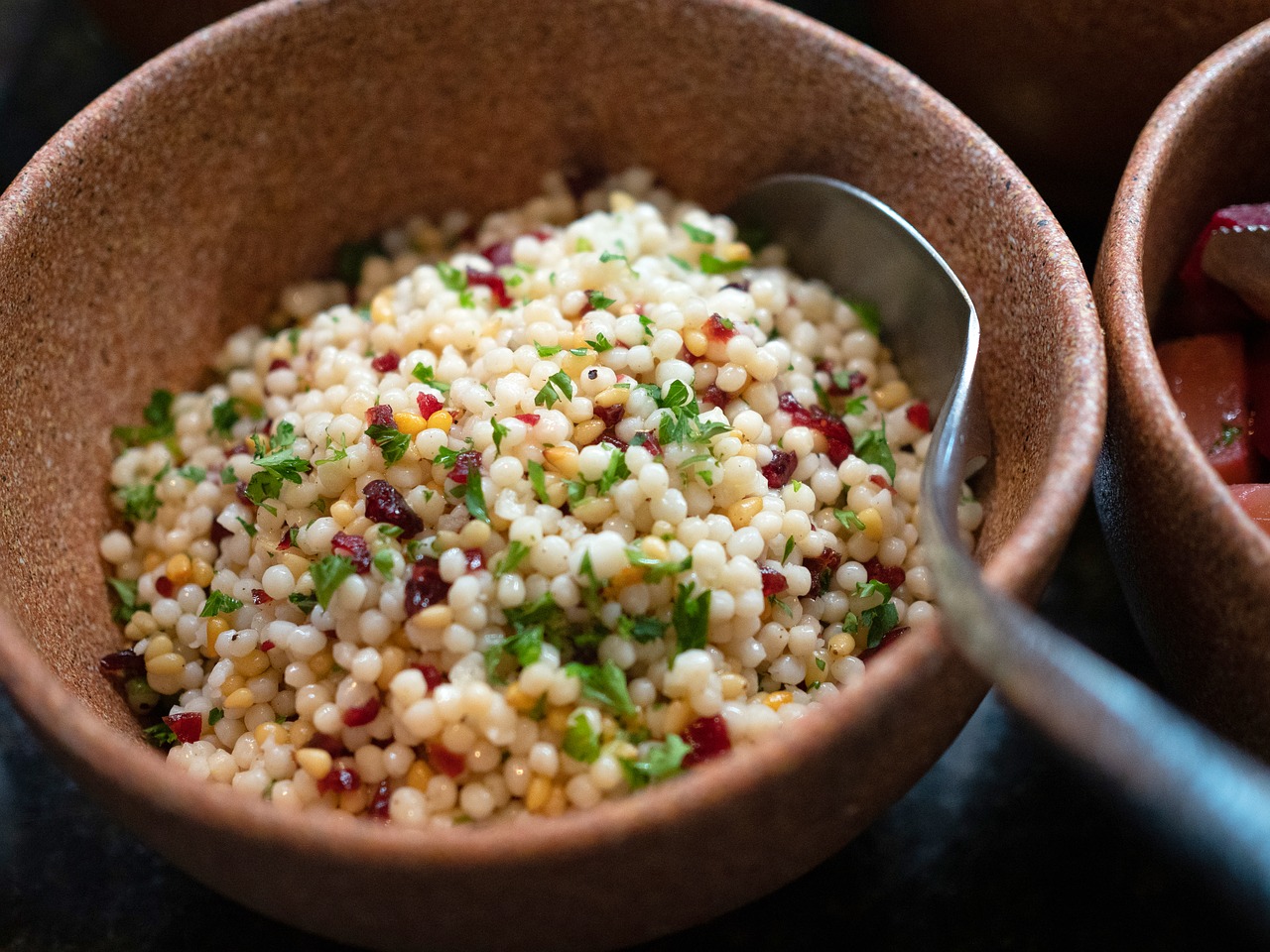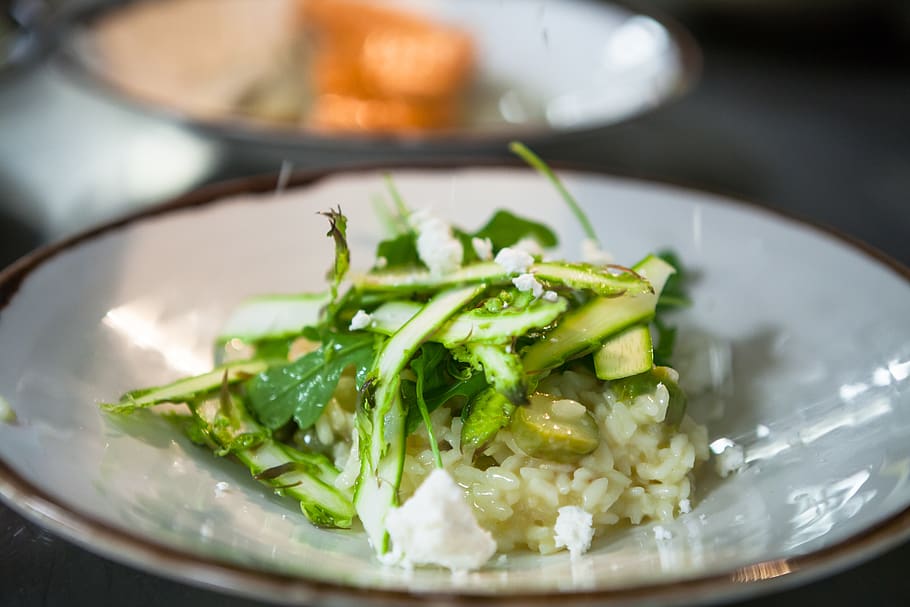
Introduction:
Looking for a refreshing and flavorful salad recipe to elevate your next meal? Look no further than the Mediterranean Chickpea Salad Recipe. This dish is bursting with Mediterranean flavors, combining chickpeas, fresh vegetables, herbs, and a tangy dressing that will leave your taste buds craving for more. Whether you’re looking for a healthy lunch option or a vibrant side dish for a summer BBQ, this recipe is sure to impress.
Origin and History of This Recipe:
The Mediterranean Chickpea Salad has its roots in the Mediterranean region, where fresh produce and wholesome ingredients are staples in the diet. This salad draws inspiration from traditional Mediterranean cuisine, known for its use of olive oil, herbs, and vegetables. The combination of chickpeas, tomatoes, cucumbers, and feta cheese creates a harmonious blend of flavors that is both satisfying and nutritious.
Things to Expect in This Post Article:
In this post, we will explore the history and origins of the Mediterranean Chickpea Salad Recipe, provide a detailed list of ingredients, walk you through the preparation steps, and offer tips and tricks to enhance the dish. We will also discuss the nutritional value of this recipe, suggest serving ideas, and provide storage and reheating instructions. Let’s dive in and discover the deliciousness of this Mediterranean-inspired salad.
Ingredients List:
- 1 can of chickpeas, drained and rinsed
- 1 cup cherry tomatoes, halved
- 1 cucumber, diced
- 1/2 red onion, thinly sliced
- 1/4 cup feta cheese, crumbled
- 1/4 cup Kalamata olives, pitted and chopped
- 2 tablespoons fresh parsley, chopped
- 2 tablespoons olive oil
- 1 tablespoon red wine vinegar
- Salt and pepper to taste
Preparation Steps:
- In a large mixing bowl, combine the chickpeas, cherry tomatoes, cucumber, red onion, feta cheese, Kalamata olives, and parsley.
- In a small bowl, whisk together the olive oil and red wine vinegar to make the dressing.
- Pour the dressing over the salad and toss gently to coat all the ingredients.
- Season with salt and pepper to taste.
- Chill the salad in the refrigerator for at least 30 minutes before serving to allow the flavors to meld together.
Cooking Time & Servings:
Preparation Time: 15 minutes
Chilling Time: 30 minutes
Servings: 4
Personal Touch:
Growing up, Mediterranean flavors always held a special place in my heart. This Chickpea Salad recipe reminds me of lazy summer days spent enjoying fresh salads with my family. The combination of tangy feta cheese, briny olives, and crisp vegetables never fails to put a smile on my face. I hope this recipe brings a taste of the Mediterranean to your table and creates fond memories for you and your loved ones.
Nutritional Information:
- Calories: 220
- Fat: 10g
- Carbohydrates: 25g
- Protein: 8g
- Fiber: 6g
Health Conditions And People To Avoid This:
People with allergies to legumes or dairy should avoid this dish. Additionally, individuals with digestive issues may want to limit their intake of chickpeas due to their high fiber content. Pregnant women should consult their healthcare provider before consuming this salad regularly.
Nutrition and Benefits To The Body:
Chickpeas are rich in protein, fiber, and essential vitamins and minerals. They can aid in weight management, promote heart health, and regulate blood sugar levels. The olive oil in this recipe provides healthy fats that support brain function and reduce inflammation. The fresh vegetables offer a mix of antioxidants and nutrients that boost immunity and promote overall well-being.
Disadvantages:
While chickpeas and feta cheese offer numerous health benefits, consuming them in excess can lead to digestive discomfort or weight gain. Eating moderately is perfectly fine, but acquiring an excess of these nutrients is harmful.
Tips and Tricks:
- Add a squeeze of lemon juice for an extra burst of freshness.
- Customize the salad by adding grilled chicken or shrimp for a protein boost.
- Substitute feta cheese with goat cheese for a different flavor profile.
Equipment Needed:
- Mixing bowl
- Small bowl
- Whisk
- Cutting board
- Knife
Variations or Substitutions:
For a vegan version of this salad, omit the feta cheese or substitute it with a dairy-free alternative. You can also swap out the cherry tomatoes for sun-dried tomatoes or add roasted red peppers for a smoky flavor. Feel free to get creative and make this recipe your own.
Serving Suggestions:
Serve the Mediterranean Chickpea Salad as a light lunch with a side of crusty bread or as a side dish alongside grilled meats or seafood. It also makes a great addition to a mezze platter or picnic spread. Garnish with fresh herbs and a drizzle of olive oil before serving.
Storage and Reheating Instructions:
Leftover salad can be stored in an airtight container in the refrigerator for up to 3 days. For best results, allow the salad to come to room temperature before serving. To refresh the flavors, drizzle with a little extra olive oil and vinegar before enjoying.
Conclusion:
Experience the vibrant flavors of the Mediterranean with the Chickpea Salad Recipe. This dish is not only delicious but also packed with wholesome ingredients that will nourish your body and soul. Give it a try, and let the flavors transport you to sun-kissed shores and blue seas. Don’t forget to share your creations with us on social media and happy cooking!
Frequently Asked Questions (FAQs):
Q: Can I make this salad ahead of time?
A: Yes, this salad can be made ahead of time. Refrigerate it for up to 24 hours before serving for the best flavor.
Q: What can I substitute for feta cheese?
A: You can substitute feta cheese with goat cheese, ricotta salata, or a dairy-free alternative like almond feta.
Q: Can I add other vegetables to this salad?
A: Yes, feel free to add bell peppers, artichoke hearts, or roasted eggplant for additional flavor and texture.
Q: How long will this salad last in the fridge?
A: This salad will last up to 3 days in the refrigerator. Just be sure to store it in an airtight container to maintain freshness.
Q: Can I freeze this salad?
A: It is not recommended to freeze this salad as the vegetables may become mushy upon thawing.
Q: Is this salad vegan-friendly?
A: This salad can be made vegan-friendly by omitting the feta cheese or using a dairy-free alternative.
Q: Can I use dried chickpeas instead of canned?
A: Yes, you can use cooked dried chickpeas instead of canned. Just be sure to soak and cook them according to package instructions before using in the salad.




















